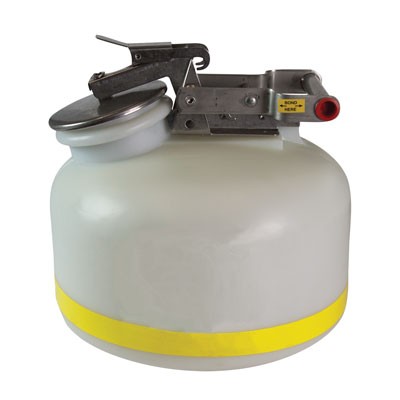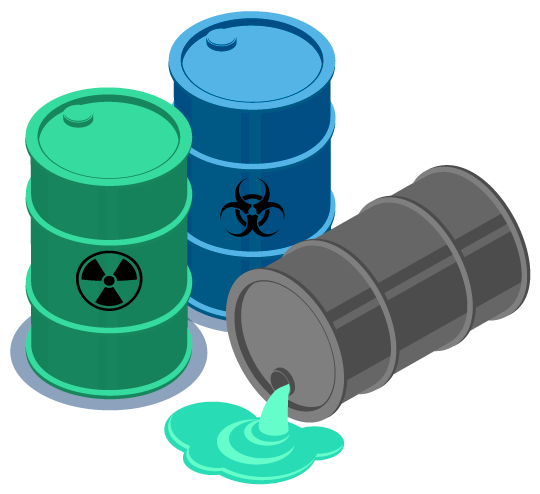Cutting-edge Industrial Wastewater Treatment Solutions: Shielding the Atmosphere
Cutting-edge Industrial Wastewater Treatment Solutions: Shielding the Atmosphere
Blog Article
Recognizing the Comprehensive Refine of Fluid Garbage Disposal: Finest Practices and Environmental Influence Factors To Consider
The administration of liquid waste disposal is a multifaceted problem that needs a complete understanding of numerous ideal practices and their connected ecological effects. From the types of liquid waste generated to the methods employed for collection, treatment, and final disposal, each step plays a vital role in securing ecological communities and public wellness.
Kinds Of Liquid Waste
Understanding the different sorts of fluid waste is vital for efficient management and disposal methods. Liquid waste can be extensively classified right into a number of kinds, each calling for one-of-a-kind handling and therapy techniques.
Industrial fluid waste commonly includes unsafe products, consisting of heavy metals, solvents, and chemicals, created throughout manufacturing processes. These wastes require rigorous regulatory conformity to shield human health and the environment. Residential fluid waste largely refers to wastewater produced from households, including sewer and greywater, which, although less hazardous, can still present significant risks if incorrectly managed.
Agricultural liquid waste, consisting of overflow from ranches, typically consists of fertilizers and chemicals that can cause environmental deterioration otherwise dealt with appropriately. Medical fluid waste, generated from medical care centers, includes infected liquids such as bodily fluids and chemicals, needing specialized disposal approaches to stop infection and environmental contamination.
Finally, oil and oil waste, usually produced by dining establishments and automotive markets, can create extreme clogs in sewer systems otherwise taken care of correctly. Understanding these categories facilitates targeted techniques for treatment, conformity with policies, and effective disposal techniques, inevitably promoting environmental sustainability and public health and wellness security.

Collection Approaches
Effective collection methods are critical for the appropriate management of liquid waste, guaranteeing that it is gathered securely and successfully before therapy or disposal. Numerous techniques are used depending upon the kind of liquid waste generated, the volume, and the specific characteristics of the waste.
One common technique is using devoted collection containers or sumps, which are designed to catch liquid waste at the source. These systems commonly incorporate pumps that assist in the transfer of waste to larger storage containers or therapy centers. In addition, mobile collection systems outfitted with vacuum innovation are employed in scenarios where waste is created intermittently or in hard-to-reach areas.
For industrial setups, closed-loop systems can effectively minimize leakages and spills, permitting the recovery and reuse of liquid waste. It is also vital to train personnel on appropriate collection methods to mitigate risks related to unsafe materials.
Moreover, executing regular upkeep timetables for collection equipment makes certain ideal performance and safety and security. The integration of advanced monitoring systems can improve collection effectiveness by giving real-time information on waste levels and potential hazards. In general, effective collection methods are fundamental to sustainable liquid waste monitoring practices.
Treatment Procedures
Therapy processes play an essential role in the management of fluid waste, transforming possibly harmful materials right into safe effluents or recyclable resources - liquid waste disposal. These procedures can be extensively categorized right into physical, chemical, and organic techniques, each tailored to deal with details impurities present in the waste stream
Physical treatment techniques, such as sedimentation and filtration, work Get More Information by eliminating put on hold solids and particle matter. These strategies are often the initial step in the treatment chain, successfully lowering the lots on subsequent processes. Chemical therapies involve using reagents to counteract dangerous materials, speed up hefty steels, or oxidize organic pollutants, thus enhancing the safety and security of the effluent.
Biological therapy processes, consisting of turned on sludge systems and anaerobic digestion, profit from the all-natural capabilities of microorganisms to break down raw material. These approaches are particularly efficient for wastewater containing naturally degradable contaminants. Advanced therapy innovations, such as membrane layer purification and progressed oxidation procedures, are significantly utilized to attain higher degrees of purification.
Including a combination of these therapy methods not only guarantees conformity with governing standards but also promotes ecological sustainability by recuperating beneficial sources from fluid waste.
Disposal Options
Just how can companies make certain the accountable and risk-free disposal of fluid waste? Efficient disposal alternatives are vital for protecting public health and the setting. The key techniques consist of land disposal, incineration, and therapy complied with by discharge into community wastewater systems.
Land disposal entails the cautious control of liquid waste in designated garbage dumps, ensuring that it does not seep into bordering soil or water. Incineration, on the other hand, topics fluid waste to heats, converting it right into ash and gases, which require correct purification to minimize discharges. This approach is suitable for unsafe wastes that can not be dealt with via traditional ways.
In instances where fluid waste can be treated, organizations may select organic or chemical therapy procedures to counteract hazardous elements prior to discharging the treated effluent into local systems. This route typically straightens with regulative needs, making certain straight from the source that the effluent fulfills security standards.
Inevitably, organizations must perform extensive assessments of each disposal option to establish its viability, considering aspects such as waste structure, regulative compliance, and possible dangers to health and wellness and the atmosphere. By picking ideal disposal techniques, services can contribute to a responsible waste monitoring method.
Environmental Effect
The ecological impact of fluid garbage disposal is a vital factor to consider for companies looking for to minimize their eco-friendly impact. Incorrect disposal techniques can lead to significant contamination of water resources, dirt degradation, and unfavorable results on local ecological communities. For circumstances, hazardous liquids can seep right into groundwater, posturing dangers to alcohol consumption water supplies and water life. Additionally, the discharge of unattended or improperly treated waste right into surface waters can lead to eutrophication, resulting in oxygen deficiency and the succeeding fatality of fish and various other microorganisms.

To minimize these effects, organizations need to embrace best methods such as implementing extensive waste treatment processes, advertising recycling and reuse, and adhering to governing standards. By taking a proactive strategy to fluid waste administration, entities can significantly reduce their ecological impact while supporting sustainable growth objectives. Eventually, a comprehensive understanding of the environmental influences connected with liquid waste disposal is crucial for notified decision-making and accountable stewardship of natural deposits.
Final Thought
Effective management of fluid waste is important for safeguarding ecological integrity and public health and look at here now wellness. By adopting best practices in disposal, collection, and therapy, together with adherence to regulative standards, the potential for unsafe contamination of ecosystems can be considerably decreased. Constant improvements in modern technology and procedures add to lasting waste management initiatives. Ultimately, a detailed understanding of liquid waste disposal not only mitigates ecological impacts but also cultivates a dedication to accountable source monitoring and ecological stewardship.
The monitoring of liquid waste disposal is a complex issue that needs an extensive understanding of various finest methods and their connected ecological influences. From the kinds of liquid waste generated to the techniques used for collection, treatment, and last disposal, each action plays a critical function in protecting communities and public wellness.The environmental influence of fluid waste disposal is a vital factor to consider for organizations seeking to minimize their environmental footprint. Ultimately, a comprehensive understanding of the ecological effects associated with liquid waste disposal is necessary for notified decision-making and responsible stewardship of natural resources.
Ultimately, an extensive understanding of fluid waste disposal not only minimizes ecological effects however likewise promotes a commitment to liable source monitoring and environmental stewardship.
Report this page